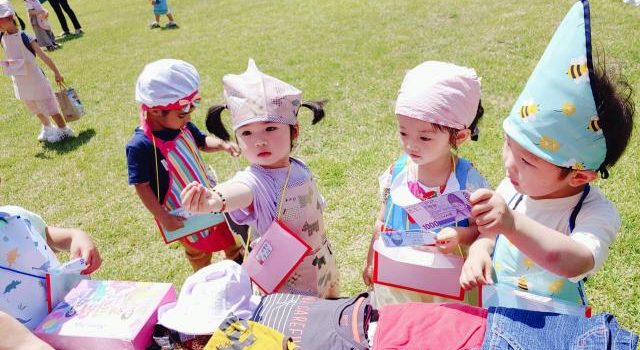In this article, we will discuss about best outdoor activities for kids . Playing outside is vital to childhood since it provides chances for enjoyment, physical activity, and education. It fosters a love of nature while assisting toddlers and young children in developing critical motor, social, and cognitive skills. Promoting outdoor play is more crucial than ever because inside entertainment, including video games and screen time, is becoming increasingly popular. Parents and other adults who care for children can make sure they have active, healthy lives by introducing them to a range of outdoor activities.
The Advantages of Playing Outside:
Children who play outside reap several benefits. It enhances balance, coordination, and motor abilities. Children develop strong bones and muscles when they run, jump, climb, and explore. They can release energy through outdoor play, which can enhance their mood and quality of sleep. Vitamin D is increased when exposed to natural light outdoors and is necessary for normal growth. Playing outside improves social connection, creativity, and problem-solving abilities in addition to physical health.
Promote exploration and unstructured play:
Free play helps kids learn a lot since it gives them the freedom to investigate their surroundings at their own pace. Give kids time to explore their imaginations rather than assigning them regimented tasks. Free play encourages imagination and curiosity, whether they are constructing a fort, chasing butterflies, or dressing up as pirates. Young children and toddlers like exploring their surroundings, and outside areas provide countless chances for discovery. While you keep an eye on them from a safe distance, let them play freely.
Select Age-Rigid Activities:
Not every age group is suitable for every outdoor activity. Selecting activities that correspond with your child’s growth stage is crucial. Simple games are ideal for toddlers, such as digging in the sand, pushing toy vehicles, and playing with balls. Sports like soccer, biking, and tree climbing present more hurdles for older kids. When organizing outdoor activities for your kids, always keep their interests and skill levels in mind to make sure they feel included and competent.
Establish a Secure Outside Area:
When encouraging outside play, safety is crucial. Make sure your outdoor area is safe by eliminating potential hazards such as damaged equipment, poisonous plants, and sharp objects. Verify sure the playground equipment is kept in good condition if you’re at a park. For those who ride scooters and bikes, provide helmets, and protect their skin with sunscreen. Your youngster can concentrate on enjoying themselves and exploring without worrying when they feel safe.
Engage in Social Skills-Building Games:
Children can play outside and improve their social skills. Children learn how to collaborate with others through playing games that promote sharing, cooperation, and communication. They learn cooperation and bargaining through games like hide-and-seek, tag, or building sandcastles with pals. Playing together also teaches them to follow rules, share, and settle disputes. As infants get older, these abilities will be crucial for forming trusting bonds and managing social situations.
Introduce Activities Based on Nature:
Children find it comforting to spend time in nature. Introduce kids to outdoor pursuits that allow them to engage with the natural world. Children can be only introduced to nature by planting flowers, watching birds, or gathering leaves. Hiking, taking nature walks, or going to a nearby farm can provide older kids with a deeper understanding of the natural world. Children who have a connection to nature learn to respect wildlife and the environment.
Arrange for Physical Difficulties:
Youngsters enjoy physical challenges that put their stamina and strength to the test. In your backyard, create obstacle courses with things to crawl under, jump over, and balance on. While honing their motor abilities, simple games like hopscotch or jumping rope keep kids moving. You might make a small scavenger hunt where kids have to look for objects in the park or yard for a more difficult challenge. Children who face physical obstacles develop self-confidence and a sense of accomplishment.
Promote Outdoor Education:
Education doesn’t have to take place inside. Outdoor areas make the ideal classroom for experiential education. Children should be encouraged to ask questions and observe the world around them. Basic scientific concepts, like as how plants grow, how shadows travel, and how insects live, can be taught during outdoor recreation. Learning is enjoyable and interesting when done through simple tasks like counting the number of trees or identifying various animals. Kids who learn outside are more inquisitive and perceptive.
Engage the Entire Family:
Playing outside with the whole family is more enjoyable. Arrange outside family activities such as hiking, picnics, and catch-the-bullet games. Together time spent outside builds family ties and teaches your child the value of physical activity. A straightforward stroll in the park or a trip to the playground might become a meaningful moment of bonding. Youngsters are more likely to remain active themselves when they witness their parents engaging in outside activities.
Conclusion:
For a child’s physical, mental, and emotional growth, outdoor play is essential. Outdoor activities promote good health and social skills, whether it is through unstructured play, exploring the natural world, or going on family trips.
Providing toddlers and kids with age-appropriate, safe, and stimulating outdoor experiences fosters their development of strength, confidence, and curiosity. By encouraging outdoor play, we have the chance to help children develop a lifetime love of movement and the outdoors as parents and caregivers. Enjoy the journey, keep it easy, and have fun!
If you want to know more about this topic; Activities for kids
